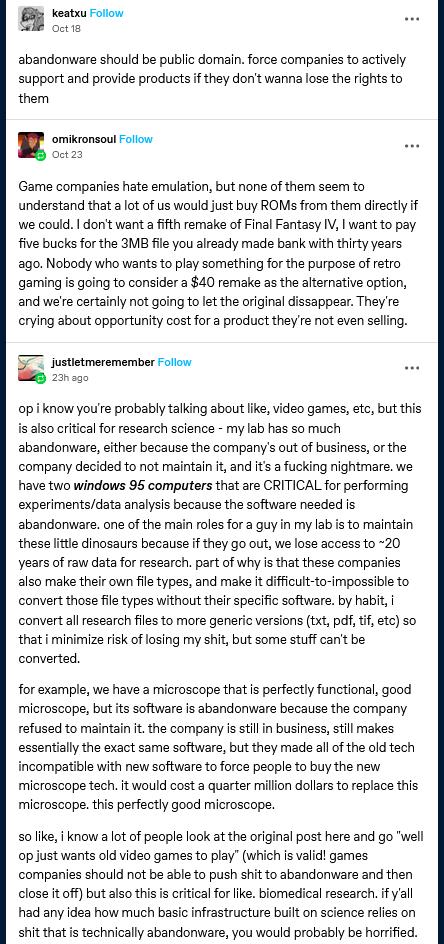this post was submitted on 09 Nov 2023
1748 points (99.2% liked)
Science Memes
11278 readers
4364 users here now
Welcome to c/science_memes @ Mander.xyz!
A place for majestic STEMLORD peacocking, as well as memes about the realities of working in a lab.

Rules
- Don't throw mud. Behave like an intellectual and remember the human.
- Keep it rooted (on topic).
- No spam.
- Infographics welcome, get schooled.
This is a science community. We use the Dawkins definition of meme.
Research Committee
Other Mander Communities
Science and Research
Biology and Life Sciences
- [email protected]
- [email protected]
- [email protected]
- [email protected]
- [email protected]
- [email protected]
- [email protected]
- [email protected]
- [email protected]
- [email protected]
- [email protected]
- [email protected]
- [email protected]
- [email protected]
- [email protected]
- [email protected]
- [email protected]
- [email protected]
- [email protected]
- [email protected]
- [email protected]
- [email protected]
- [email protected]
- [email protected]
- !reptiles and [email protected]
Physical Sciences
- [email protected]
- [email protected]
- [email protected]
- [email protected]
- [email protected]
- [email protected]
- [email protected]
- [email protected]
- [email protected]
Humanities and Social Sciences
Practical and Applied Sciences
- !exercise-and [email protected]
- [email protected]
- !self [email protected]
- [email protected]
- [email protected]
- [email protected]
Memes
Miscellaneous
founded 2 years ago
MODERATORS
you are viewing a single comment's thread
view the rest of the comments
view the rest of the comments

If no entity wants to take on support, they should be forced to release the source code to the Public Domain. Copyright is a social contract, not an entitlement -- if you don't hold up your end of the bargain of keeping it available, you deserve to lose it.
Well, I think a better solution would be to deliver all source code with the compiled software as well. I suppose that would extend to the operating system itself and the hope that there'd be enough motivation for skillful folks to maintain that OS and support for new hardware. Great, that would indeed solve the problem and is a potential outcome if digital rights are overhauled. This is something I fully support.
What is stopping them now from solving access to this data, even if it's in a proprietary format?
Really, again, I don't take issue with the abandonware argument but rather with the situation that I posted itself. Source code availability and the rights surrounding are only one part of the larger problem in the post.
Source code and the rights to it, aren't the root cause of the problem in the post that I was regarding. It could facilitate a solution, sure but given that there is at least ~20 years of data at risk currently, there was also ~20 years of potential labor hours to solve it. Yet, instead, they chose to 'solve' it in a terrible way. That is what I take issue with.
This is really not a problem that's fixed by open source.
The microscope will be controlled by a card that only plugs into 30 year old desktops. If you open source the drivers for it this only gives you the source code to drivers for Windows 95. These drivers will be incredibly hacky and hard coded and probably die if you install a service pack.
Having access to the source code doesn't let you replace the entire stack because you're still physically tied to old hardware, that is worse than a raspberry pi and even just making sure that you can update Windows is a feat of engineering.
At the very least, being able to read the source code gives you a Hell of a head start on writing a new driver for an appropriate OS (and by that I mean Linux, obviously). Saves a whole reverse-engineering step.
Also, the "a card that only plugs into 30 year old desktops" thing isn't quite as insurmountable as you think.
I'm not saying creating an entire project to adapt the controller and software stack to modern systems would be cheap or easy, but it's possible -- and more to the point, seemingly less expensive than buying the new microscope for "hundreds of thousands of €" (especially in the long run, since the company is likely to pull the same shit over and over again), even if you've got to pay a gaggle of comp-e grad students to put it together for you.
I mean the most upvoted answer in your link says it often is that insurmountable.
Basically, it's a huge gamble and a substantial software engineering effort even when you know what you're doing and source code is available.
It's not surprising that biologists keep using old machines until they die.